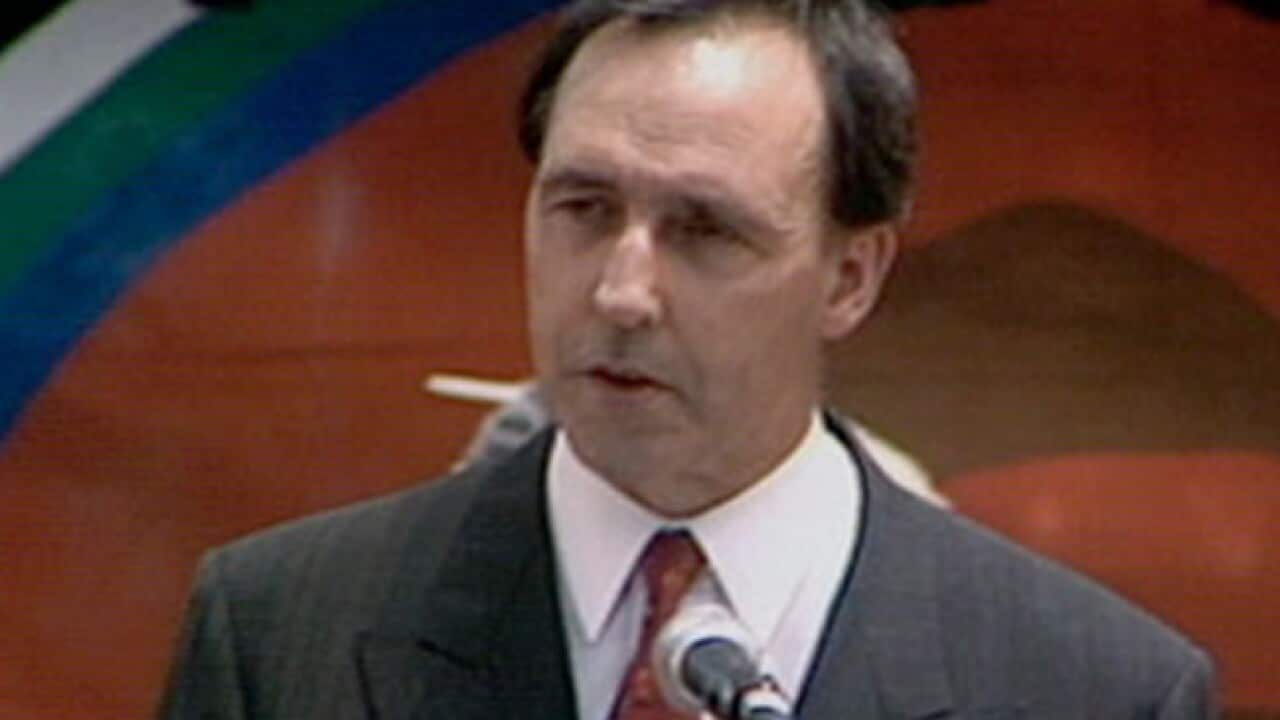“It was we who did the dispossessing. We took the traditional lands and smashed the traditional way of life. We brought the diseases. The alcohol. We committed the murders. We took the children from their mothers. We failed to ask - how would I feel if this were done to me?
Paul Keating, December 10, 1992.
With these words, the former prime minister's speech was the first time an Australian political leader had publicly acknowledged the impact of colonial and contemporary government policies on Aboriginal and Torres Strait islander people.
The speech put reconciliation on Australia's political agenda and is credited as paving the way for 2007's formal apology to indigenous Australians.
The speech came six months after the High Court's tumultuous Mabo decision on native title.
On the eve of the 10 year anniversary, co-chairs of Reconciliation Australia, Dr Tom Calma and Melinda Cilento, said Mr Keating's Redfern speech was "one of the most significant speeches ever delivered by an Australian political leader".
"In his speech Keating spoke frankly and honestly of the land theft, dispossession, violence and discrimination suffered by Aboriginal and Torres Strait islander people in the course of
modern Australia's creation," the statement said.
"Significantly, Keating referred to the need for what he described as an 'act of recognition'."
On Saturday, Gail Mabo, the daughter of the late land rights activist Eddie Mabo, read extracts from the Redfern speech at Sydney's David Minton Gallery.
She told the ABC that Australians should reflect on Mr Keating's words.
"It's one that people should actually look at and reflect on, because the words he was saying in that, it reflects that issue of change, but it's a thing of through small things, big things will happen," Ms Mabo said.
"But change will happen. It mightn't be right here, right now, but it's just changing people's attitudes, and that's what he was doing with this speech.
“I don't think it was presented to Australia in a political context. What he said was it was necessary first for white Australia to recognize what has happened, and second to recognize it in a way that was empatheti,” said Keating's principal speech writer Don Watson.
NITVNews: Redfern reflects amid 'racial disharmony'
NITVNews: PM Gillard reflects on the power of the Redfern speech
Warren Mundine extended interview

